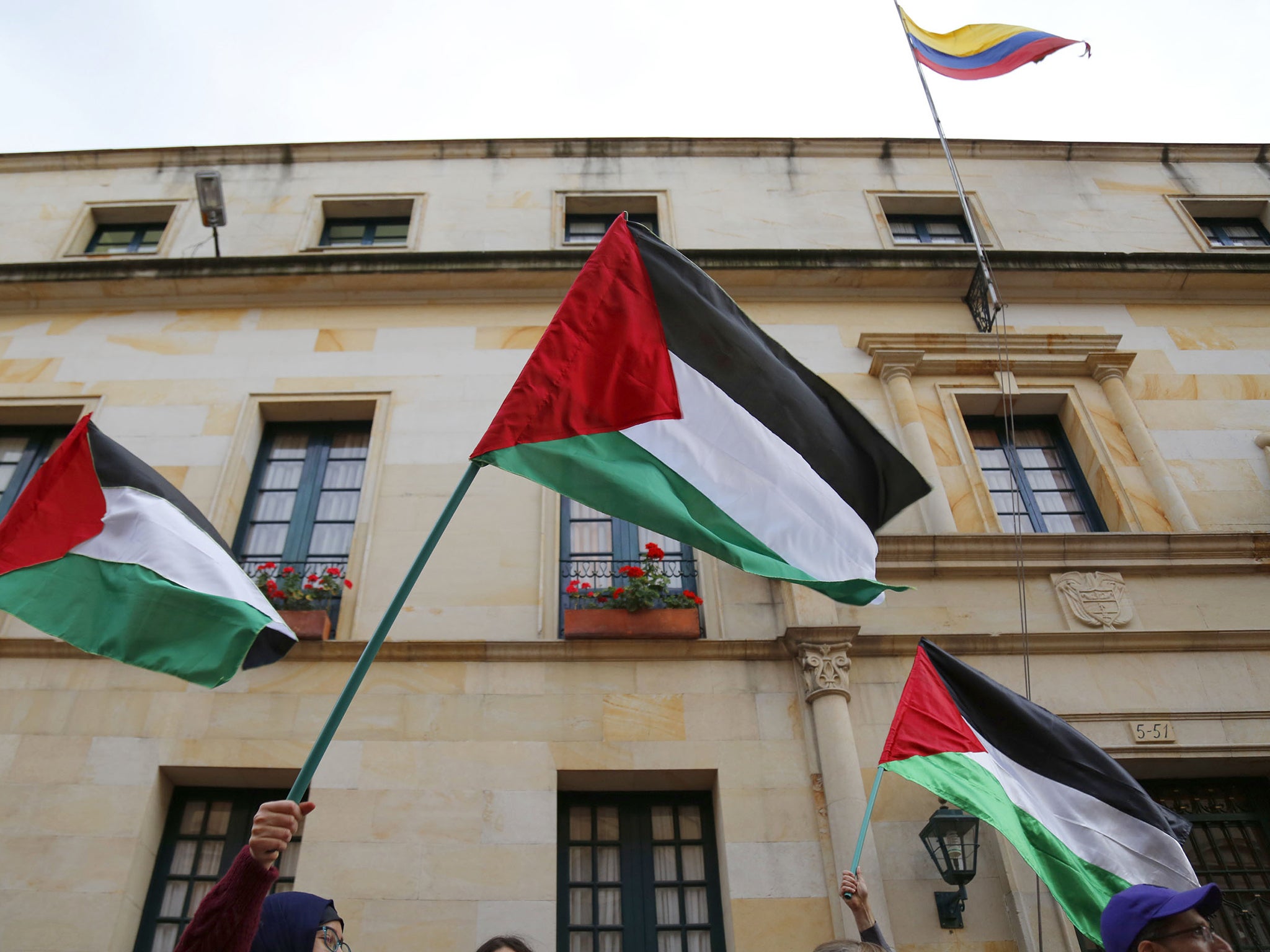Colombia becomes last South American country to recognise Palestinian state
Outgoing president Juan Manuel Santos made the decision shortly before leaving office last week

Your support helps us to tell the story
From reproductive rights to climate change to Big Tech, The Independent is on the ground when the story is developing. Whether it's investigating the financials of Elon Musk's pro-Trump PAC or producing our latest documentary, 'The A Word', which shines a light on the American women fighting for reproductive rights, we know how important it is to parse out the facts from the messaging.
At such a critical moment in US history, we need reporters on the ground. Your donation allows us to keep sending journalists to speak to both sides of the story.
The Independent is trusted by Americans across the entire political spectrum. And unlike many other quality news outlets, we choose not to lock Americans out of our reporting and analysis with paywalls. We believe quality journalism should be available to everyone, paid for by those who can afford it.
Your support makes all the difference.Colombia has become the latest country to recognise the state of Palestine, the South American country’s foreign minister has said.
Carlos Holmes said the outgoing president, Juan Manuel Santos, made the decision shortly before leaving office last week.
The new president of Colombia, Ivan Duque, took office on Tuesday and was informed of Mr Santos’ decision a few days ago.
His government has said it would study the implication of Mr Santos’ last minute decision, which was detailed in a 3 August letter to the Palestinian representative in Colombia, the foreign ministry said.
The government acknowledged the decision was legal.
“Given possible omissions that could come to light about the way in which this decision was taken by the outgoing president, the government will cautiously examine its implications and will act according to international law,” Mr Holmes said in a statement.
Mr Santos decided to recognise Palestine as a “free, independent and sovereign state,” according to the letter, which was circulated to reporters by the foreign ministry.
“Just as the Palestinian people have a right to constitute an independent state, Israel has a right to live in peace alongside its neighbours,” the letter said.
The Israeli embassy in Bogota said it was surprised and disappointed.
“We ask the Colombian government to reverse the decision made by the previous administration in its last days, which contravenes the close relations, extensive cooperation in vital areas and interests of both countries,” it said in a statement posted to its Twitter account.
The decision came to light while the US ambassador to the United Nations, Nikki Haley, was visiting Colombia.
She attended Mr Duque’s inauguration on Tuesday, and on Wednesday she visited Venezuelan migrants in the northern border city of Cucuta.
The US, a close ally of Israel, was getting more information about the situation and had no immediate comment, the US mission to the United Nations said.
The US does not recognise a Palestinian state, and Colombia long refrained from doing so due its close ties with Washington.
But in recent years Colombia has sought to chart a more independent foreign policy which has included calling for changes to US-backed anti-narcotics policies.
In a statement, the Palestinian representative to the UN said: ”We thank the Colombian government for this decision and we are sure that it will contribute significantly to generating the necessary conditions in the search for peace in the Middle East.”
Palestine has been recognised as a sovereign state by the UN General Assembly, the International Criminal Court and at least 136 other countries.
It seeks to create a state in Gaza, the West Bank and East Jerusalem – lands Israel captured in the 1967 war.
Colombia is the last country in South America to recognise Palestinian statehood.
In December, it abstained from a vote by the 193-member UN General Assembly on a resolution calling for the US to drop its recognition of Jerusalem as Israel’s capital. The US president, Donald Trump, had threatened to cut off financial aid to countries which voted in favour.
Join our commenting forum
Join thought-provoking conversations, follow other Independent readers and see their replies
Comments